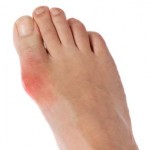The CDiabetes News Brief: October 6 to 12, 2014
Compiled and edited by Elizabeth Klein, MPhil
Exercise and healthy eating lowers gestational diabetes risk
 Pregnancy has all sorts of different effects on your body and puts you at risk for gestational diabetes. This temporary diabetes usually disappears after the birth, but raises your chances of getting another form of the disease–such as type 2–later in life. It can also affect the health of the baby. It can, for example, raise the chances that they’ll become obese. However, there are some things you can do to lower your risk. A recent study showed that getting regular exercise, staying at a healthy weight, and not smoking can lower gestational diabetes risk by almost half.
Pregnancy has all sorts of different effects on your body and puts you at risk for gestational diabetes. This temporary diabetes usually disappears after the birth, but raises your chances of getting another form of the disease–such as type 2–later in life. It can also affect the health of the baby. It can, for example, raise the chances that they’ll become obese. However, there are some things you can do to lower your risk. A recent study showed that getting regular exercise, staying at a healthy weight, and not smoking can lower gestational diabetes risk by almost half.
Read More . . .
Long-lasting insulin is more effective for type 1 diabetes
 If you have type 1 diabetes, controlling your blood glucose and insulin levels can be a constant struggle. You might need to take insulin shots every day, and measure your blood glucose levels very carefully. A new study showed that using long-lasting insulin, instead of the immediate-acting kind that most use, helped people manage their disease better. It even kept them healthier in the long run, by lowering their chances of hypoglycemia weight gain over time. However, it is also more expensive, which means that it may not be an option for a lot of people.
If you have type 1 diabetes, controlling your blood glucose and insulin levels can be a constant struggle. You might need to take insulin shots every day, and measure your blood glucose levels very carefully. A new study showed that using long-lasting insulin, instead of the immediate-acting kind that most use, helped people manage their disease better. It even kept them healthier in the long run, by lowering their chances of hypoglycemia weight gain over time. However, it is also more expensive, which means that it may not be an option for a lot of people.
Read More . . .
Vitamin D is not effective for diabetes treatment
 If you have diabetes, it’s normal to look for different ways of managing the disease. However, the amount of information available makes it hard to know what to believe. In the past, some research showed that vitamin D helped prevent or control type 2 diabetes, but another study showed that this is not true. Looking at the original results, researchers found that other things, like exercise and food, could account for the improvements. Overall, vitamin D seemed to have no effect. This shows you should always talk with your healthcare provider before making any changes based on new research.
If you have diabetes, it’s normal to look for different ways of managing the disease. However, the amount of information available makes it hard to know what to believe. In the past, some research showed that vitamin D helped prevent or control type 2 diabetes, but another study showed that this is not true. Looking at the original results, researchers found that other things, like exercise and food, could account for the improvements. Overall, vitamin D seemed to have no effect. This shows you should always talk with your healthcare provider before making any changes based on new research.
Read More . . .
Exercise lowers risk of diabetes at different rates for different people
 A big part avoiding diabetes and staying healthy is getting plenty of exercise. Regular exercise lowers the chances that you’ll get the disease, so it’s especially important if you’re at risk in other ways. However, while regular exercise is important for almost everyone, it does not always have the same effect for different kinds of people. Research showed that regular exercise lowered the risk of type 2 diabetes by different amounts for different groups. People who have a high risk of the disease because of their genes see less benefit than others, and men in general benefit more than women.
A big part avoiding diabetes and staying healthy is getting plenty of exercise. Regular exercise lowers the chances that you’ll get the disease, so it’s especially important if you’re at risk in other ways. However, while regular exercise is important for almost everyone, it does not always have the same effect for different kinds of people. Research showed that regular exercise lowered the risk of type 2 diabetes by different amounts for different groups. People who have a high risk of the disease because of their genes see less benefit than others, and men in general benefit more than women.
Read More . . .
Poor sleep and strict food control leads to higher risk of childhood obesity
 Obesity in children is a growing problem in lots of places around the world, but most healthcare providers aren’t completely sure why this is. There are just as many causes of obesity in children as there are in adults. It’s not as simple as overeating. New research looked at over 300 children between the ages of 2 and 5, along with their parents. Scientists looked at how the relationships between the children and their parents affected their weight. Those who had trouble sleeping, had overweight parents, or whose parents were very strict about what they ate were more likely to be overweight or obese.
Obesity in children is a growing problem in lots of places around the world, but most healthcare providers aren’t completely sure why this is. There are just as many causes of obesity in children as there are in adults. It’s not as simple as overeating. New research looked at over 300 children between the ages of 2 and 5, along with their parents. Scientists looked at how the relationships between the children and their parents affected their weight. Those who had trouble sleeping, had overweight parents, or whose parents were very strict about what they ate were more likely to be overweight or obese.
Read More . . .
Antibiotics increase risk of obesity for babies and toddlers
 Medicines often have dangerous side effects if they are not used carefully. This is especially true when they are taken by very young children. A baby or toddler is not able to handle medicines as well as an adult or older child, and this sometimes has serious effects on their health. Recent research showed that children who were given certain kinds of antibiotics before the age of 2 were slightly more likely to be obese when they got older. Over 65,000 children were studied and those who has been given antibiotics 4 or more times were 11% more likely to be obese than others.
Medicines often have dangerous side effects if they are not used carefully. This is especially true when they are taken by very young children. A baby or toddler is not able to handle medicines as well as an adult or older child, and this sometimes has serious effects on their health. Recent research showed that children who were given certain kinds of antibiotics before the age of 2 were slightly more likely to be obese when they got older. Over 65,000 children were studied and those who has been given antibiotics 4 or more times were 11% more likely to be obese than others.
Read More . . .
Higher diabetes risk seen in people with gout
 Gout is a painful joint condition that is caused by a buildup of uric acid in the body. This can be triggered by a meal plan that is too high in sugar or protein, drinking too much alcohol, or a family history of the disease. Recently, a team of researchers from Harvard University and Boston University looked to see if there was a connection between gout and diabetes, and they found some surprising results. If you have gout, you have a higher risk for diabetes. And, women with gout have a much higher chance of developing diabetes–about 70% higher than for men with gout.
Gout is a painful joint condition that is caused by a buildup of uric acid in the body. This can be triggered by a meal plan that is too high in sugar or protein, drinking too much alcohol, or a family history of the disease. Recently, a team of researchers from Harvard University and Boston University looked to see if there was a connection between gout and diabetes, and they found some surprising results. If you have gout, you have a higher risk for diabetes. And, women with gout have a much higher chance of developing diabetes–about 70% higher than for men with gout.
Read More . . .
New treatment for diabetic ulcers
 If you have diabetes, you probably know that you have an increased risk for ulcers–particularly on your feet. The best way to prevent these painful and dangerous sores is to check your skin every day, and keep it clean. But new research has shown that some bacteria on your skin is important, and might even be able to help you avoid ulcers altogether. The researchers told a small group of people to use ammonia-oxidizing bacteria on their skin, and found that after three weeks, they had less acne and fewer diabetic ulcers. More research is needed, but these results are similar to others that were found earlier this year, showing that bacteria might be very important in maintaining skin health.
If you have diabetes, you probably know that you have an increased risk for ulcers–particularly on your feet. The best way to prevent these painful and dangerous sores is to check your skin every day, and keep it clean. But new research has shown that some bacteria on your skin is important, and might even be able to help you avoid ulcers altogether. The researchers told a small group of people to use ammonia-oxidizing bacteria on their skin, and found that after three weeks, they had less acne and fewer diabetic ulcers. More research is needed, but these results are similar to others that were found earlier this year, showing that bacteria might be very important in maintaining skin health.
Read More . . .
Apples may help you lose weight
 You already know that eating plenty of fruits and vegetables is an important part of staying healthy. But scientists at Washington State University have found that a substance in Granny Smith apples may be even better than other healthy foods for helping you lose weight. The fiber and other non-digestible compounds in this fruit can help good bacteria grow in your gut, which in turn can help you reach a healthy weight more easily.
You already know that eating plenty of fruits and vegetables is an important part of staying healthy. But scientists at Washington State University have found that a substance in Granny Smith apples may be even better than other healthy foods for helping you lose weight. The fiber and other non-digestible compounds in this fruit can help good bacteria grow in your gut, which in turn can help you reach a healthy weight more easily.
Read More . . .
A virus is one possible cause of childhood diabetes
 In the past few years, more and more children have been diagnosed with type 1 diabetes, a serious autoimmune disease. New research from Tel Aviv University in Israel has found one possible cause of this epidemic. The researchers think that a virus contracted by women while they are pregnant can lead to babies that are not able to control their blood glucose levels. The scientists hope that with more research, a vaccine can be developed to prevent this virus from triggering type 1 diabetes in children.
In the past few years, more and more children have been diagnosed with type 1 diabetes, a serious autoimmune disease. New research from Tel Aviv University in Israel has found one possible cause of this epidemic. The researchers think that a virus contracted by women while they are pregnant can lead to babies that are not able to control their blood glucose levels. The scientists hope that with more research, a vaccine can be developed to prevent this virus from triggering type 1 diabetes in children.
Read More . . .

